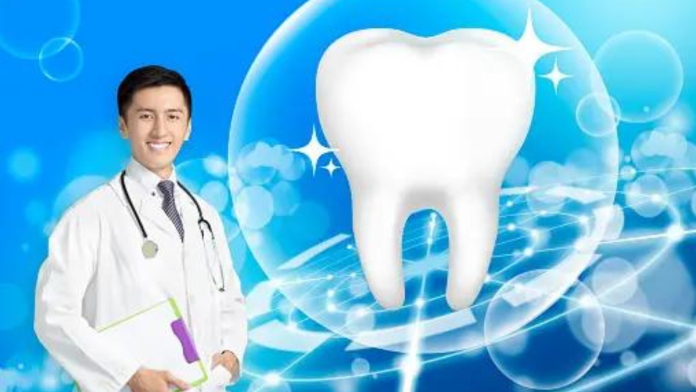Dentists are more than just providers of dental cleanings and fillings. They are highly skilled professionals offering a comprehensive array of services designed to maintain, restore, and enhance oral health. Whether you need a routine check-up, emergency care, or specialized treatments, understanding the range of dental services available can help you make informed decisions about your oral health. In this blog, we’ll explore the diverse services offered by dentists and what you can expect from each.
Routine Dental Care
Routine dental care forms the foundation of good oral health. During a comprehensive examination, the dentist assesses your overall oral health, checking for signs of decay, gum disease, and other issues. This examination often includes X-rays to get a detailed view of your teeth and jaw structure. Following the examination, professional cleanings, also known as prophylaxis, are performed to remove plaque and tartar buildup that regular brushing and flossing might miss. This process helps prevent cavities, gum disease, and bad breath, and is typically recommended every six months. Additionally, fluoride treatments are applied to strengthen tooth enamel and protect against decay, benefiting children, teenagers, and adults at higher risk for cavities. Fluoride is usually applied as a gel or varnish during a routine visit. Dental sealants, which are protective coatings applied to the chewing surfaces of back teeth, also help prevent decay, particularly for children and teenagers who may be more susceptible to cavities in these areas.
Restorative Dentistry
Restorative dentistry focuses on repairing and replacing damaged or missing teeth to restore function and appearance. Fillings are used to repair teeth damaged by decay. The dentist removes the decayed portion of the tooth and fills the cavity with materials such as composite resin, amalgam, or gold, restoring the tooth’s function and preventing further damage. Crowns, on the other hand, cover and protect a damaged or weakened tooth, typically made from materials like porcelain, metal, or a combination of both. Crowns restore the tooth’s shape, size, and strength. For replacing one or more missing teeth, bridges are employed. They consist of artificial teeth anchored to adjacent natural teeth or dental implants, helping to restore the ability to chew and speak properly, as well as maintain the shape of the face. Dentures are removable appliances used to replace missing teeth, available in full or partial forms depending on how many teeth need replacing. They help restore function and appearance for individuals with significant tooth loss. Dental implants offer a long-term solution for missing teeth. They involve placing a titanium post into the jawbone, which acts as a root for a replacement tooth or bridge, providing a durable and natural-looking option for tooth replacement.
Cosmetic Dentistry
Cosmetic dentistry focuses on enhancing the appearance of your smile. Teeth whitening treatments brighten discolored or stained teeth, with options available for both in-office procedures and take-home kits with custom trays for gradual whitening. Veneers, which are thin shells of porcelain or composite resin bonded to the front of teeth, can improve the appearance of teeth by correcting issues such as discoloration, chips, or gaps, creating a more uniform and attractive smile. Dental bonding involves applying a tooth-colored resin to repair minor imperfections such as chips, cracks, or gaps. The resin is shaped to match the natural tooth and hardened with a special light. For correcting misaligned teeth and bite issues, orthodontic treatments such as braces and clear aligners are used. These treatments straighten teeth and improve overall oral function, and are typically tailored to each patient’s needs.
Preventive Services
Preventive services are essential for maintaining oral health and avoiding more severe issues. Oral cancer screenings are an important part of preventive care. During these screenings, dentists examine the mouth, gums, and throat for any signs of abnormal growths or lesions that could indicate oral cancer. Periodontal care involves diagnosing and treating gum disease. This may include scaling and root planing to remove plaque and tartar from below the gumline and improve gum health. Custom mouthguards are created for protection during sports or to prevent teeth grinding (bruxism). These devices help protect teeth from injury and reduce the risk of dental damage. Additionally, some dentists offer nutritional counseling to help patients make dietary choices that support oral health, including advice on reducing sugar intake and choosing foods that strengthen teeth and gums.
Emergency Dental Care
Emergency dental care addresses urgent issues and provides relief for various types of dental pain. Pain management is a key aspect, where dentists diagnose the source of pain, whether caused by cavities, infections, or trauma, and recommend appropriate treatments. Tooth extractions may be necessary for severely damaged or decayed teeth, or to remove wisdom teeth. Dentist ensure the procedure is as comfortable as possible and provide post-extraction care instructions. In cases of dental trauma, such as a knocked-out tooth or broken tooth, dentists offer immediate care to address the injury and restore function. Quick action can significantly improve the chances of saving a damaged tooth.
Conclusion
Dentists offer a wide range of services that go beyond the basics of dental care. From preventive and restorative treatments to cosmetic enhancements and emergency care, their expertise is crucial for maintaining oral health and overall well-being. By understanding the various services available, you can make informed decisions about your dental care and ensure you receive the best possible treatment for your needs.








